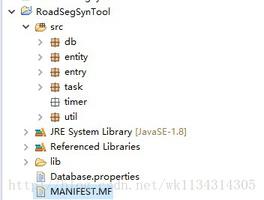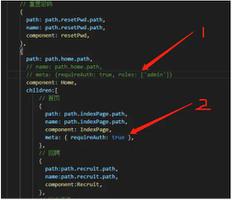Java控制台版五子棋的简单实现方法
设计一个10*10的棋盘:
行号、列号单独输出
package yu;
import java.util.Scanner;
public class WuZiQi {
/*● 棋子1
○ 棋子2
*
*/
public static void main(String[] args) {
// TODO Auto-generated method stub
String [] [] qipan=new String [10] [10];
//初始化棋盘:
for(int k=0;k<qipan.length;k++){
for(int q=0;q<qipan[k].length;q++){
qipan[k][q]="+ ";
}
}
//输出棋盘:
System.out.print(" ");
for(int i=0;i<10;i++){
System.out.print(i+" ");
}
System.out.println();
for(int k=0;k<qipan.length;k++){
System.out.print(k+" ");
for(int q=0;q<qipan[k].length;q++){
System.out.print(qipan[k][q]);
}
System.out.println();
}
输入坐标下棋(x,y),并作容错处理:
- 保证输入的坐标是(x,y);
- 下标越界处理;
- 判断此坐标有无棋子;
- 确保坐标输入为数字。
int x,y;//储存下棋坐标:
Scanner sc=new Scanner(System.in);
boolean flag=true;//区分黑白棋;
while(true){
System.out.println("请输入坐标下棋,坐标格式(x,y)");
String str=sc.nextLine();
String [] str1=str.split(",");
//容错处理1
if(str1.length!=2){
System.out.println("坐标输入错误,请重新输入!!");
}else{
//容错处理3
try{
x=Integer.parseInt(str1[0]);
y=Integer.parseInt(str1[1]);
}catch(Exception e){
System.out.println("坐标输入错误,请重新输入!!");
continue;
}
//容错处理2--下标越界
if(x>=10||y>=10){
System.out.println("坐标输入错误,请重新输入!!");
}else{
//容错处理--判断当前位置是否有棋子:
//黑白棋:
if(qipan[x][y].equals("+ ")){
if(flag){
qipan[x][y]="● ";
}else{
qipan[x][y]="○ ";
}
flag=!flag;
}else{
System.out.println("当前位置已有棋子,请重新输入坐标!!");
continue;
}
//输出棋盘:
System.out.print(" ");
for(int i=0;i<10;i++){
System.out.print(i+" ");
}
System.out.println();
for(int k=0;k<qipan.length;k++){
System.out.print(k+" ");
for(int q=0;q<qipan[k].length;q++){
System.out.print(qipan[k][q]);
}
System.out.println();
}
判断是否五子连珠:
8个方向,4条线
- 上方&下方
- 左方&右方
- 左斜上&右斜下
- 右斜上&左斜下
//判断是否五子连珠:
int count=1;
String currentZiQi=qipan[x][y];//储存当前下的棋子;
//判断上方:
for(int k=x-1;k>=0;k--){
if(qipan[k][y].equals(currentZiQi)){
count++;
}else{
break;
}
}
if(count>=5){
System.out.println(currentZiQi+"获胜!!!");
break;
}
//判断下方:
for(int k=x+1;k<10;k++){
if(qipan[k][y].equals(currentZiQi)){
count++;
}else{
break;
}
}
if(count>=5){
System.out.println(currentZiQi+"获胜!!!");
break;
}
count=1;//重置count;
//判断左边:
for(int k=y-1;k>=0;k--){
if(qipan[x][k].equals(currentZiQi)){
count++;
}else{
break;
}
}
if(count>=5){
System.out.println(currentZiQi+"获胜!!!");
break;
}
//判断右边:
for(int k=y+1;k<10;k++){
if(qipan[x][k].equals(currentZiQi)){
count++;
}else{
break;
}
}
if(count>=5){
System.out.println(currentZiQi+"获胜!!!");
break;
}
count=1;
//判断左上斜边:
for(int k=x-1,j=y-1;k>=0&&j>=0;k--,j--){
if(qipan[k][j].equals(currentZiQi)){
count++;
}else{
break;
}
}
if(count>=5){
System.out.println(currentZiQi+"获胜!!!");
break;
}
//右下斜方:
for(int k=x+1,j=y+1;k<10&&j<10;k++,j++){
if(qipan[k][j].equals(currentZiQi)){
count++;
}else{
break;
}
}
if(count>=5){
System.out.println(currentZiQi+"获胜!!!");
break;
}
count=1;
//左下斜方:
for(int k=x-1,j=y+1;k>=0&&j<10;k--,j++){
if(qipan[k][j].equals(currentZiQi)){
count++;
}else{
break;
}
}
if(count>=5){
System.out.println(currentZiQi+"获胜!!!");
break;
}
//右上斜方:
for(int k=x+1,j=y-1;k<10&&j>=0;k++,j--){
if(qipan[k][j].equals(currentZiQi)){
count++;
}else{
break;
}
}
if(count>=5){
System.out.println(currentZiQi+"获胜!!!");
break;
}
count=1;
}
}
}
}
}
总结
到此这篇关于Java控制台版五子棋的简单实现方法的文章就介绍到这了,更多相关Java控制台版五子棋内容请搜索以前的文章或继续浏览下面的相关文章希望大家以后多多支持!
以上是 Java控制台版五子棋的简单实现方法 的全部内容, 来源链接: utcz.com/z/322956.html









